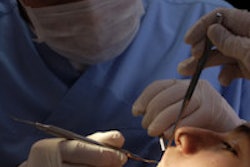
Heart disease could be the major cause of death in developing countries by 2020, according to a study in the New England Journal of Medicine (June 2004, Vol. 350, pp. 2438-2440). But improving oral health in these countries could alter this prediction.
The association between periodontal disease and heart disease has elevated the importance of oral health in developing nations with a high prevalence of periodontal disease. This prompted researchers from the University of Lahore to investigate the effect of nonsurgical periodontal therapy on systemic levels of C-reactive protein (CRP), fibrinogen, and white blood cell (WBC) counts in patients with and without coronary heart disease (CHD) in Pakistan (Journal of Periodontology, October 2009, Vol. 80:10, pp. 1574-1580).
CRP, fibrinogen, and WBC counts are all markers of serum inflammation, and their systemic levels have been associated with CHD risk. The researchers found that treating gum disease can lower these inflammatory markers, which, in turn, could reduce the risk of CHD in patients from a developing country.
Although epidemiological studies have extensively reported the association between periodontal infections and cardiovascular disease, few have observed the outcome of eliminating periodontal infections on systemic inflammation, said lead author S. Akhtar Hussain Bokhari, associate professor at the University of Lahore, in an e-mail interview.
"The important finding of this study is that if periodontal infection is removed, there will be an improvement in systemic health that may reduce the risk of coronary heart disease," he added. "The uniqueness of this study may be that it is the first intervention study conducted on oral-cardiac diseases relationship on the population of a developing country."
Significant reduction
Dr. Bokhari and colleagues looked at 27 patients with CHD and 18 patients without the disease, all between the ages of 40 and 50. Periodontal disease was measured through bleeding on probing (BOP), and probing depth (PD). All the patients received nonsurgical periodontal therapy that included oral hygiene instructions and subgingival scaling and root planing. Systemic levels of inflammatory markers (CRP, fibrinogen, and WBC counts) were measured prior to and one month after periodontal therapy.
Eventually, 17 patients with CHD and 11 without the condition completed the study. The CHD group saw a 59% reduction in BOP, while the other group saw a 34% reduction. As for PD, there was a 41% reduction for the CHD group and a 35% reduction for the group without CHD.
Both groups saw a significant reduction in CRP, fibrinogen, and WBC counts (21% to 40%).
"CRP, fibrinogen, and WBC counts, nonspecific markers of systemic inflammation associated with an increased risk for cardiovascular events, can be reduced as a result of mechanical periodontal therapy in a population from a developing country," the authors wrote. "This may result in a decreased risk for CHD in the treated patients."
These findings may help spur the World Health Organization and other agencies to develop a program promoting oral health in developing nations, explained Dr. Bokhari. The prevalence of periodontal disease in developing nations is quite high compared to developed nations, he added. Also, the dentists' role in developing nations is more important and challenging, as the level of awareness about oral health is low and people lack health information.
Larger studies needed
While other researchers agree that lowering these inflammatory markers could reduce the risk of CHD, they point out that the size of the study makes the findings less definitive.
"Decreasing the WBC counts, CRP, and fibrinogen suggests that control of periodontal inflammation may help decrease the risk for cardiovascular disease, but is not definitive since a larger, better designed study would be necessary to prove it," said John Grbic, D.M.D., professor at the Columbia University College of Dental Medicine. "So although positive, I would remain cautious about over-interpreting the results of this study."
Dentists can tell their patients that scaling and root planing may have the additional benefit of reducing the levels of CRP, which has been shown to be a risk factor for cardiovascular disease, noted Dr. Grbic. However, they should also tell them that continued recalls may be necessary to maintain the potential beneficial effects of these therapies.
Dr. Bokhari acknowledges the need for larger studies to further establish this link, noting that this was a pilot study. He and his colleagues recently completed a follow-up randomized, controlled trial involving 246 CHD patients in Lahore, in which they again investigated the role of periodontal therapy in risk-reduction of CHD.
"This will possibly be the largest such trial to be reported from Pakistan, maybe even South Asia and Eastern Mediterranean Regional countries," Dr. Bokhari said.



















